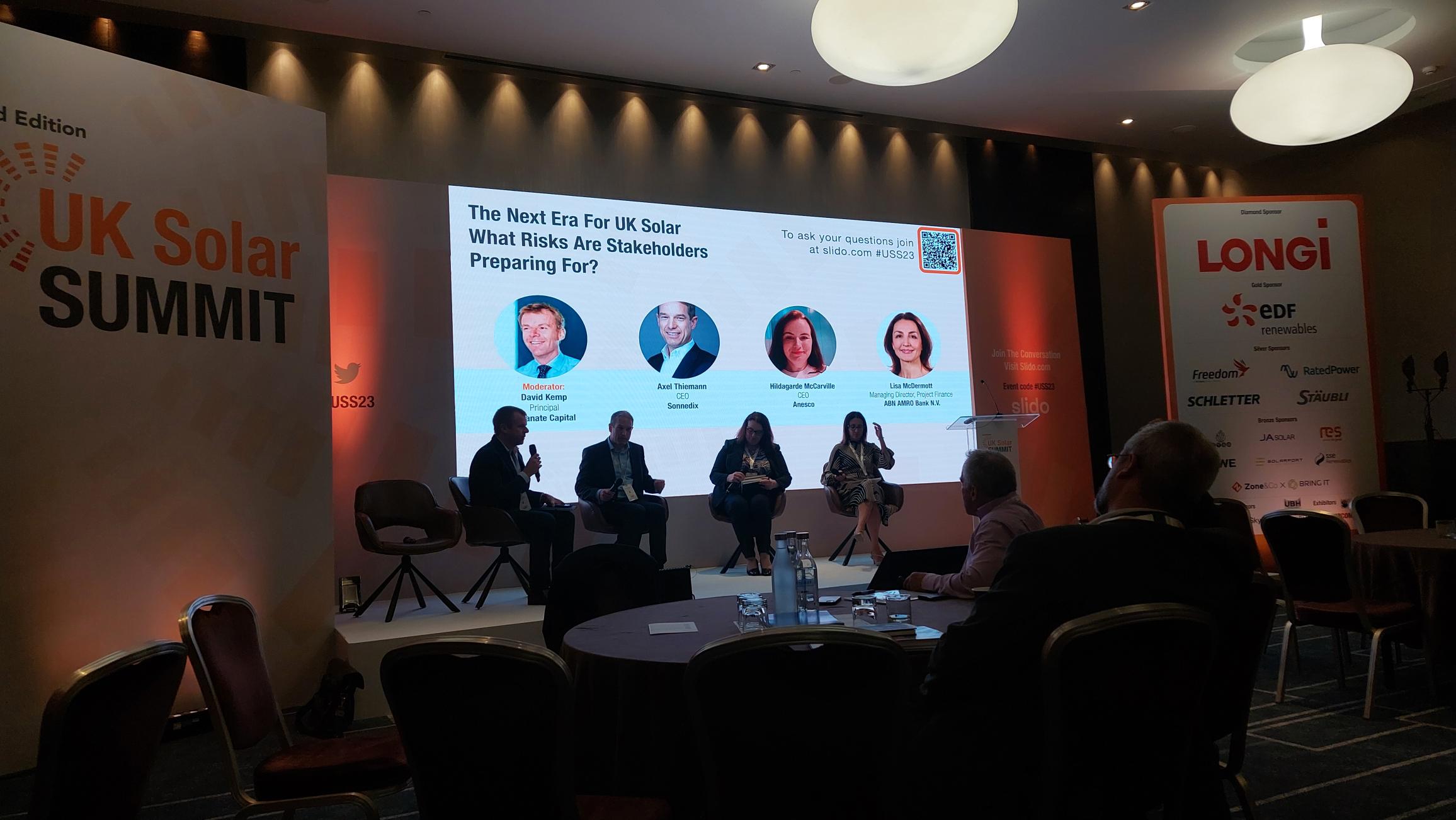
David Kemp (Emanate Capital), Axel Thiemann (Sonnedix), Hildagarde McCarville (ANESCO), and Lisa McDermott (ABN AMRO Bank N.V.) during yesterday’s UKSS panel.
The UK’s solar sector is back on the up after experiencing a tumultuous past few years. The success of the sector has won the attention of the UK Government and resulted in a number of supportive measures including the creation of the Solar Taskforce, which has its first meeting in May.
Following energy minister Graham Stuart’s assurances that the Government is working hard to meet its 70GW solar target on the first day of Solar Media’s UK Solar Summit 2023 (27 June), the close of the second day of the event saw a panel of experts discuss what risks threaten the success of this new era of solar.
“I think we are in a very different place from where we started. Everything used to be subsidised and it was a partially philanthropic exercise to invest in renewables and I think it’s a great thing that [the sector is] now competitive and that political and economic support is on the highest level,” said panellist Axel Thiemann, CEO at the solar energy company Sonnedix.
However, a significant threat to this continued success is the struggle to bring together investment and how grid flexibility can support long term development.
“I think those are the two key things that overarch everything and that's across the whole value chain,” continued Thiemann.
“There are lots of concepts, but there's no firm playbook that I think the regulators have settled on. And that is what ultimately, will determine how fast and successful transition.”
Fellow panellist Hildagarde McCarville, CEO of renewable energy operator Anesco, highlighted business models as another factor that could threaten the UK’s solar sector.
“In terms of business models, they are quite outdated. For example if we look at batteries, which today are more co-located with solar but still not regarded as zero megawatts, which is crazy.”
McCarville also brought up the skills shortage issue that is plaguing not only solar but the entire renewables sector.
“It's not just in terms of planning or policies, it's also about who's going to sit in the National Grid ESO to review contracts, the same inspectors that are doing loans for commercial retail,” added McCarville.
“The public sector is an aging workforce and you're not going to get somebody to [manage] voltage with six months training. So for me in the short to medium term, that's the real issue.”
Lisa McDermott, managing director, project finance at AGN AMRO Bank N.V was in agreement with McCarville over the importance of co-located batteries.
“We need to incentivise [solar and batteries] to work together. Like in California, they use them to actually pick up the lack of supply, rather than just flooding in frequency auctions,” said McDermott.
“I really think that's a system we need to go towards to incentivise combined auctions, like they had in Portugal where you actually remunerate on the basis of delivering infirm power.”

